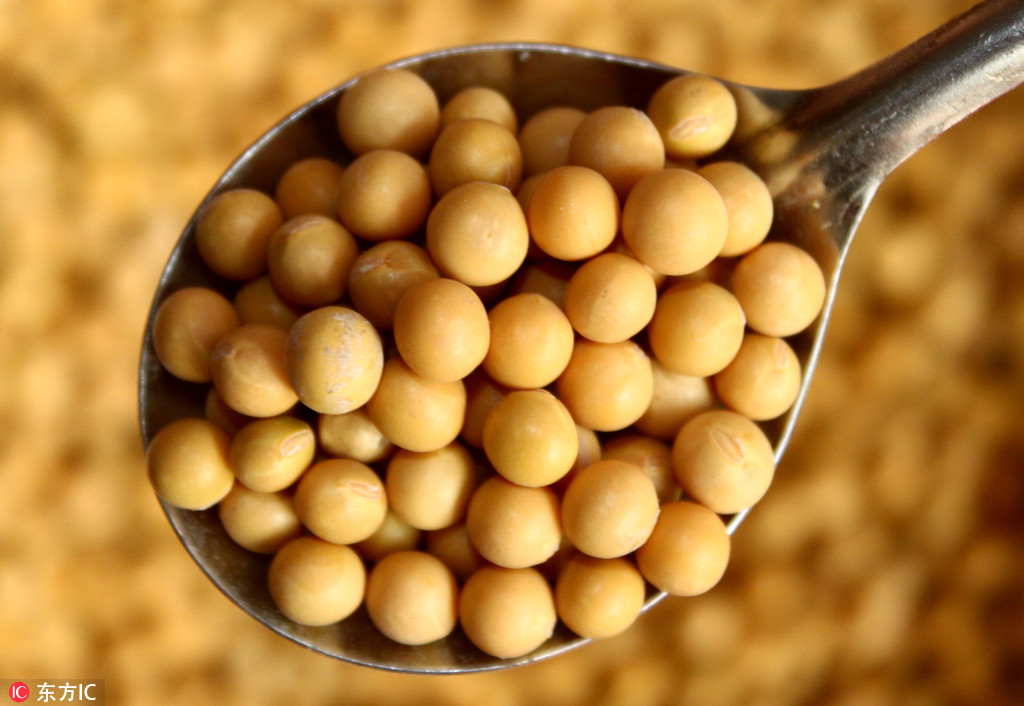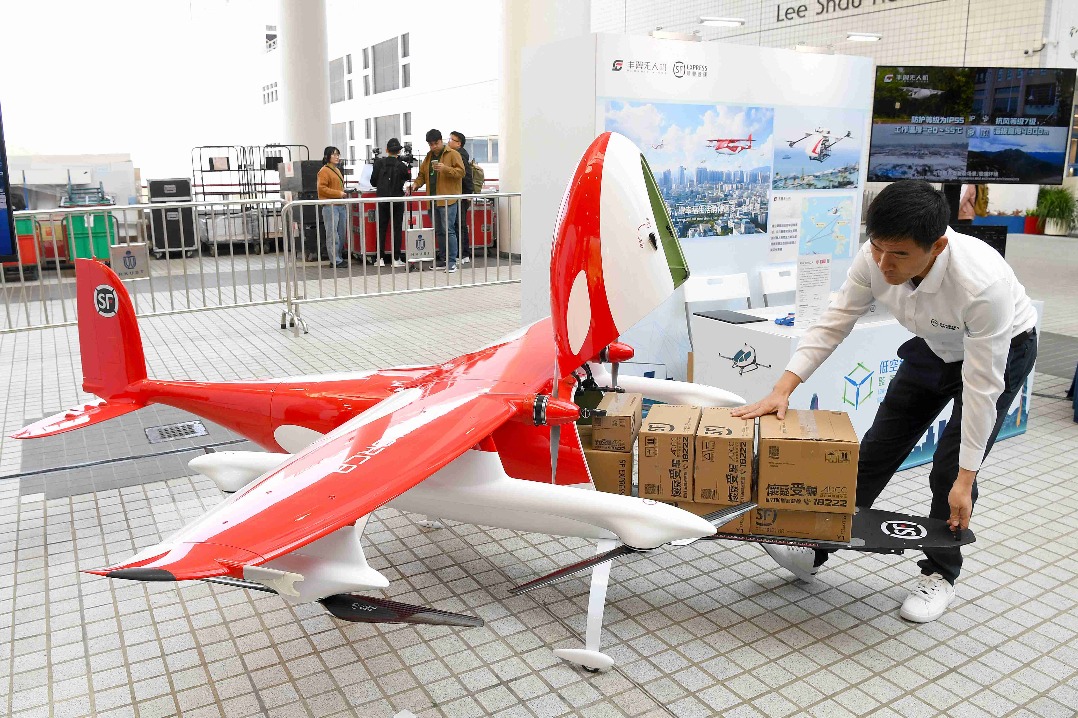Reduction of US farm imports 'will have limited effect on China'


US agriculture may suffer but the door for negotiation remains open, says a senior official
China can minimize the impact of raising tariffs on farm products from the United States by increasing imports from other countries and adjusting domestic agricultural patterns, a senior official in charge of agriculture has said, but he warned that the US risks losing the Chinese market its farmers have been exploring for decades.
In an interview on Thursday, Han Jun, deputy head of the Office of the Central Leading Group for Rural Affairs and vice-minister of agriculture and rural affairs, said that despite the US administration's subsidy plan of up to $12 billion to its farmers and the initial agreement with the European Union, also known as the EU, about increasing imports of US soybeans to Europe, losing the huge Chinese market will cause great suffering for the US farm sector.
However, he added, China does not want to see the escalation of China-US trade tensions, and most people on both sides hope that trade relations between the two countries do not end in stalemate.
"Negotiation is the only way to resolve trade disputes between the two countries," he said. "For China, the door for negotiation will not close. China will pay attention to US concerns in agriculture, but the US should not demand unreasonably highly from China."
Following the US imposition of increased tariffs on Chinese goods, since July 6 China has levied additional 25 percent tariffs on 517 kinds of agricultural products imported from the US, including soybeans, cottons and pork. The total value of these imports last year was around $21 billion, Han said.
Last week, China announced it may levy a further $60 billion-worth of additional tariffs on US goods, in response to US threats to impose additional tariffs on Chinese goods worth $200 billion.
Han said the list will include 387 kinds of agricultural products, and once those latest Chinese countermeasures take effect, almost all agricultural products from the US will face additional tariffs.
"China made the countermeasures after extensively soliciting opinions and carefully evaluating the results, and they are rational and restrained," he said.
Han said China and the US are strongly complementary in agricultural trade.
"China has huge demand for imports of agricultural products with its population growth and rising living standards of its people, and it will keep expanding imports," he said. "We hope to see healthy agricultural trade relations between the two countries, so US farmers also get benefits. However, the US has kept escalating trade frictions, regardless of the consensus that has already been achieved between the two countries."
Han said that China will evaluate closely the effects of its countermeasures to the US-imposed tariffs to minimize their impact on domestic production and people's livelihood.
"Levying additional tariffs will cause a great decrease in the export of US agricultural products to China," he said. "But the impact on China is very limited, due to China's multiple import resources. If a trade war breaks out between China and the US, many other countries will be willing and capable of replacing the US's share of agricultural products in the Chinese market."
Any escalation of tensions between the two countries will result in higher costs for US agricultural products to enter in China, and a significant reduction of its market share, which will help competitors, said Han.
"Once other countries have become reliable suppliers of agricultural goods for China, it will be very difficult for US agricultural producers to regain the Chinese market," he said.
Han noted that additional tariffs will cause a great decrease in China's imports of soybeans from the US, the most important product of China-US agriculture trade. But China is fully prepared for this and is capable of bridging the gap in reduced supply from the US through various measures.
These include increasing imports from other countries, promoting alternatives to animal feeds made of soybeans among the poultry and husbandry industries to reduce consumption, and increasing domestic production.
China relies on import for most of its soybeans, with the US the second largest source. Nearly 60 percent of all soybean exports from the US between 2015 and 2017 went to China.
Experts have already predicted that China could reduce imports by more than 10 million metric tons this year — a reduction of more than 10 percent on last year's total — because of expanding domestic production and the promotion of soybean substitutes. Han said China may increase soybean imports from countries such as Brazil to meet its increasing demand.
Han also mentioned that China and the US had some fruitful negotiations in agricultural trade in June, during which the two sides reached initial agreements that should China increase its import of US agricultural products by a big margin. However, since then the US side had unilaterally provoked conflicts, so the outcome of the negotiations have become invalid.
Due to China's countermeasures, Han said, US agriculture will suffer, and US farmers risk losing the Chinese market which they have been exploring for decades, despite the subsidy plan of up to $12 billion offered by US government.
Despite of the agreement by the EU to import more soybeans from the US, it is estimated that over the next 10 years, the EU could only import between 13 and 14 million metric tons of soybeans every year, compared to more than 30 million metric tons imported from the US by China last year, so it would be impossible for the US to handle that surplus, Han warned.
"Peoples of all walks of life in US agriculture have expressed worries over losing the Chinese market," he said.
The additional tariff measures imposed by the US on July 6 did not include agricultural products imported from China, Han said, but most aquatic products, fruits and vegetables exported to the US will be covered by second round of tariff measures likely to be imposed by the US, affecting around $200 billion-worth of Chinese goods.
Such a measure may have a negative impact on production and export of agricultural products, but Han said the Chinese government will take measures to minimize the impact, such as helping producers finding alternative export destinations and exploring the domestic market.




































